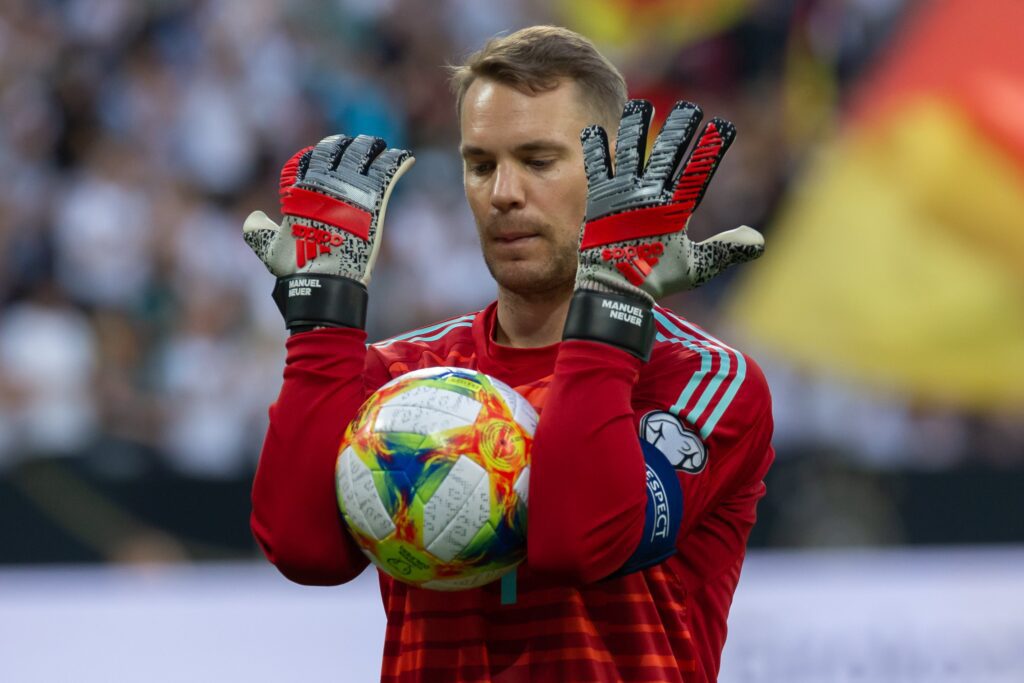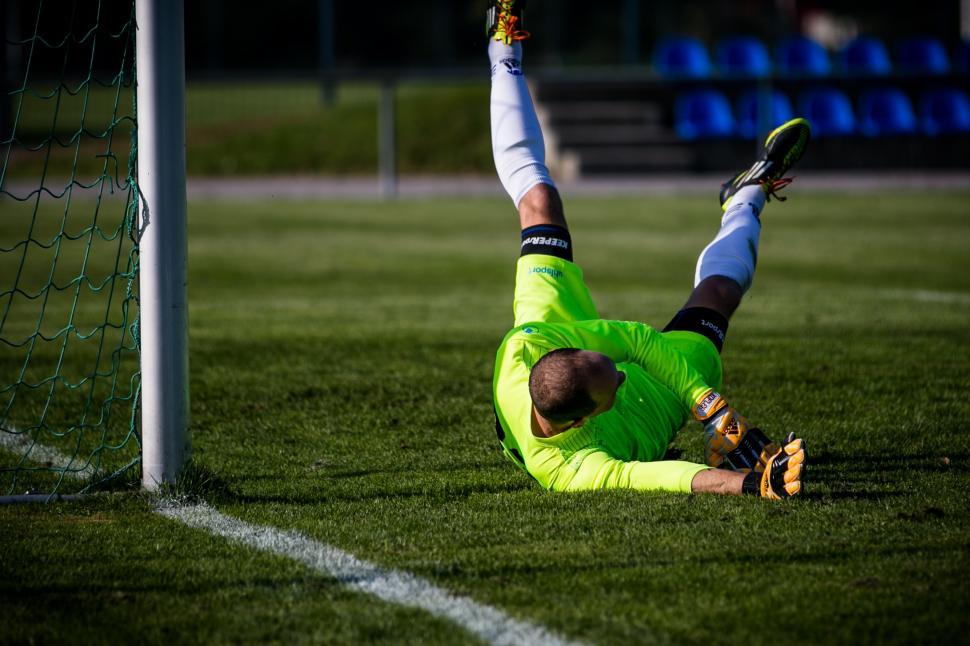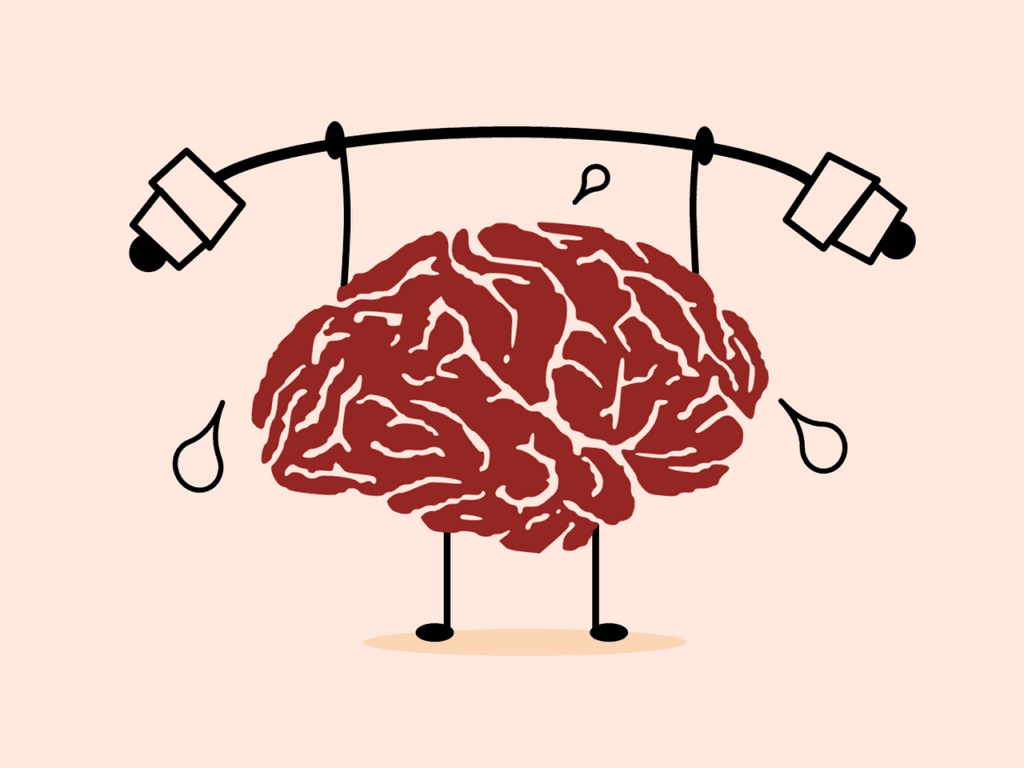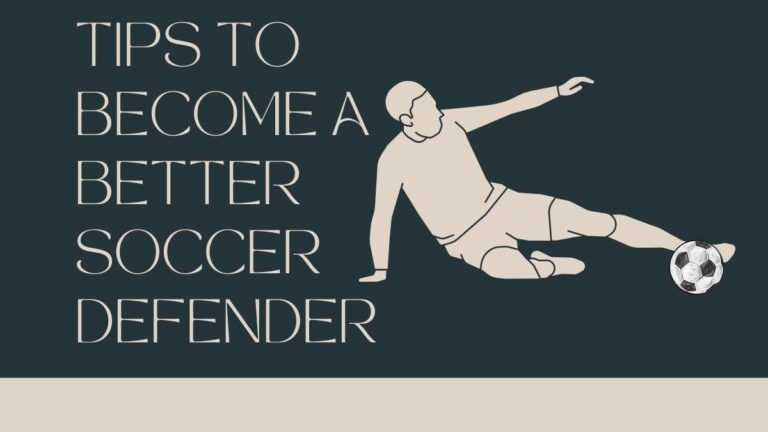7 Tips to Become a Better Soccer Goalkeeper
Goalkeepers are an important part of any team in soccer. They’re like the last line of defense and can make big saves that can change the game and help their team win.
So, if you’re a goalkeeper and want to improve your game, you’re in the right spot. In this article, we’ll give you seven important tips to get better at goalkeeping. We’ll cover the basics and also talk about how to stay mentally strong. These tips will help you improve your skills and do great in the goal.
1. Master the Fundamentals

The fundamentals of goalkeeping are the foundation of any great goalkeeper. They include good footwork, hand-eye coordination, reflexes, positioning, and decision-making.
Footwork is essential for a goalkeeper. You need to be able to move quickly and efficiently across the goal line. This includes being able to shuffle, side-step, and dive. You can practice your footwork by doing drills with cones or by playing a game of keep-up with the ball.
Hand-eye coordination is important for catching, punching, and blocking shots. You need to be able to track the ball with your eyes and react quickly to save it. You can practice your hand-eye coordination by juggling the ball or by playing catch with a friend.
Reflexes are important for making saves that you don’t have time to think about. The better your reflexes, the more likely you are to save shots that would otherwise be goals. You can practice your reflexes by doing drills that involve catching or blocking balls that are thrown or kicked at you unexpectedly.
Positioning is key to goalkeeping. You need to be in the right place at the right time to make saves. This means understanding the angles of attack and knowing where to position yourself to cut off the shooter’s options. You can practice your positioning by watching videos of professional goalkeepers or by working with a coach who can help you develop your understanding of the game.
Decision-making is important for making split-second decisions about whether to catch, punch, or block a shot. You need to be able to assess the situation quickly and make the best possible decision. You can practice your decision-making by doing drills that involve making saves under pressure.
Once you have mastered the fundamentals, you will be well on your way to becoming a better goalkeeper. However, it is important to remember that the fundamentals are just the beginning. There is still much more to learn about goalkeeping, and you will need to continue to train and practice in order to improve.
2. Improve Your Agility
Being a goalkeeper requires lightning-fast reflexes and agility to make those jaw-dropping saves. So, let’s work on amping up your agility to become a formidable force between the posts.
Agility drills are your secret weapon. You can start with ladder exercises to improve your foot speed and coordination. Next, you can incorporate cone drills into your training routine. To do so, set up a series of cones in different patterns and challenge yourself to navigate through them swiftly. This will improve your change of direction and help you become more elusive in the goal.
Another fantastic agility exercise is the reaction ball. Get yourself one of those bouncy rubber balls with unpredictable bounces, and have a teammate throw it at you from different angles. Reacting quickly and making saves with this unpredictable ball will sharpen your reflexes like never before.
Also, don’t forget to work on your explosive power. You should incorporate plyometric exercises like squat jumps, box jumps, and lateral bounds into your workouts. These exercises will improve your explosive strength, enabling you to launch yourself toward those high-flying shots.
3. Sharpen Your Reflexes

As a goalkeeper, your reflexes are your best friends. Having quick reflexes will allow you to make crucial saves during a match.
One classic drill to improve your reflexes is the close-range shot drill. Grab a teammate or a coach and have them take shots at you from close range. The key here is to react instinctively and make quick saves. This drill not only sharpens your reflexes but also helps you become more comfortable with shots that come at you at lightning speed.
Another effective drill is the reaction save drill. Position yourself in the goal, and have a teammate randomly call out a direction. React instantly and dive in that direction to make the save. This drill simulates game-like scenarios where you have to rely on your reflexes to make split-second decisions.
Working with reaction balls is another fantastic way to sharpen your reflexes. These specially designed balls have unpredictable bounces, forcing you to react swiftly and make saves on the fly. Get creative and incorporate different reaction ball exercises into your training routine.
4. Work on Your Distribution

Being a goalkeeper isn’t just about making saves; it’s also about being a vital contributor to your team’s attack. Mastering your distribution skills will allow you to initiate swift counterattacks and launch precision passes to your teammates. So, let’s focus on becoming a top-notch distributor of the ball.
First, let’s talk about throwing. Practice different throwing techniques to suit various situations. The overarm throw is excellent for long-range passes, while the sidearm throw allows for quick and accurate distribution to nearby players. Work on your throwing power and accuracy by targeting specific spots or teammates during your training sessions.
Next, let’s move on to kicking. Develop a strong and accurate goal kick by working on your technique. Focus on proper body positioning, striking the ball with the sweet spot of your foot, and generating power through your kicking motion. Practice both long and short goal kicks to ensure you’re comfortable in any situation.
Rolling the ball can be an effective and quick way to distribute it to teammates in close proximity. Master the art of rolling the ball accurately and with the right pace. This technique can facilitate fast build-ups and maintain possession for your team.
5. Develop Communication Skills
As a goalkeeper, you’re not just a shot-stopper; you’re the commander of your team’s defense. Effective communication is the key to organizing your defense, coordinating movements, and ensuring everyone is on the same page. So, let’s dive into how you can develop strong communication skills and lead your team from the back.
First and foremost, be vocal. From the moment the match kicks off, start communicating with your defenders. Shout out instructions, provide guidance on positioning, and alert your teammates to potential threats. Your voice should be a constant presence, guiding and motivating your defense.
Learn the art of concise and clear communication. Use short, precise commands that everyone can understand in the heat of the moment. Develop a set of common signals and verbal cues that indicate specific actions or movements, allowing your defense to react quickly to changing situations.
Lastly, listen to your defenders. Communication is a two-way street. Pay attention to their input, feedback, and observations. Foster a collaborative environment where everyone’s insights are valued, contributing to a stronger and more cohesive defensive unit.
6. Strengthen Your Mental Game

Goalkeeping isn’t just about physical abilities; it’s also a mental challenge. The ability to stay focused, composed, and resilient under pressure is what sets exceptional goalkeepers apart. Let’s explore how you can strengthen your mental game and become a mentally tough goalkeeper.
One important aspect is visualization. Before matches or training sessions, take a few moments to visualize yourself making outstanding saves and commanding the goal with confidence. Imagine the sound of the crowd, the feel of the ball in your hands, and the exhilaration of success. Such mental imagery helps program your mind for success and boosts your confidence.
You can also practice positive self-talk. To do so, replace negative thoughts or self-doubt with positive affirmations. Remind yourself of your strengths, past successes, and your ability to overcome challenges. Also, make sure to keep a positive and resilient mindset, even in the face of setbacks or mistakes.
You can develop mental resilience by embracing adversity. Mistakes happen, even by the best goalkeepers. Learn from them, but don’t dwell on them. Instead, focus on your next save or your next opportunity to make a positive impact. Let setbacks fuel your determination to bounce back stronger.
This is how you can strengthen your mental game as a goalkeeper. If you want to learn more, check out our article on how to master your mental toughness.
7. Study the Game
To truly become an exceptional goalkeeper, never stop learning. Studying the game and learning from the best goalkeepers can provide valuable insights and techniques to incorporate into your own style. Let’s explore how you can become a student of the game and elevate your goalkeeping skills.
Watch professional matches and analyze the performances of top-level goalkeepers. Observe their positioning, decision-making, handling, and distribution. Pay attention to their communication with the defense and their overall presence in the goal. Take notes and try to identify specific techniques or strategies you can apply to your own game.
Another important tip is to analyze your own performances. Record your matches or training sessions and review them later. Look for areas where you can improve, such as positioning errors, decision-making, or technical flaws. Self-analysis allows you to identify patterns and areas for growth, enabling you to fine-tune your skills.
Remember, the journey to becoming a better goalkeeper is a continuous one. Study the game, learn from top goalkeepers, analyze your own performances, engage with the goalkeeper community, seek feedback, and adapt as needed. By embracing a lifelong learning mindset, you’ll constantly evolve and refine your skills, becoming the best goalkeeper you can be. Good luck on your goalkeeping journey!
Conclusion
Becoming a better soccer goalkeeper requires dedication, perseverance, and a commitment to constant improvement. By mastering the fundamentals, honing your agility and reflexes, developing strong communication and mental resilience, and studying the game, you can elevate your goalkeeping skills to new heights.
Embrace these tips, put in the hard work, and watch yourself grow into a formidable presence between the goalposts. So, get out there, train relentlessly, and make those jaw-dropping saves that can lead your team toward victory. If you’re a goalkeeper looking to buy the best cleats for yourself, check out this article.
Read more of our tips for other soccer positions:







